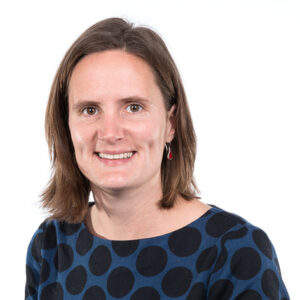[et_pb_section fb_built=”1″ _builder_version=”3.27.1″ background_enable_color=”off”][et_pb_row _builder_version=”4.5.1″ background_size=”initial” background_position=”top_left” background_repeat=”repeat”][et_pb_column type=”4_4″ _builder_version=”3.25″ custom_padding=”|||” custom_padding__hover=”|||”][et_pb_image src=”https://businesssouth.org/wp-content/uploads/2021/02/WEBSITE-Event-Headers-BSTH-1280-x-720-17.png” title_text=”WEBSITE Event Headers BSTH 1280 x 720 (17)” _builder_version=”4.6.6″ _module_preset=”default”][/et_pb_image][et_pb_text _builder_version=”4.6.6″ text_font=”ABeeZee||||||||” header_5_font=”ABeeZee||||||||” header_5_text_align=”left” header_5_text_color=”#47a2c1″ background_size=”initial” background_position=”top_left” background_repeat=”repeat” text_text_align=”left”]
Join us at our virtual event, ‘Achieving our Net Zero Carbon Buildings Ambition’ where Arup, will lead a discussion about the steps we need to take to ensure the UK’s building stock becomes a source of net zero pride. The session will include an overview of Arup’s latest net zero report: Net Zero Carbon Buildings: Three Steps to Take Now.
Organisations across the property sector are committing to change, announcing net zero targets and publishing their strategies. The next step is implementation – decarbonising existing buildings and ensuring new-build developments are net zero from the outset. Achieving net zero won’t be easy, but it’s an essential journey.
The session will include audience Q&A and contributions from experts in their field including:
- Stephen Hill, Arup, co-author of the Three Steps to Take Now report
- Paul Phasey, Director and Passivhaus Designer at Architecture PLB
- Ann Cousins, Arup, Resilience and Climate Change Consultant with experience of supporting cities to develop strategies to achieve net zero ambitions
More about the Net Zero Carbon Buildings: Three steps to Take Now report
The global property sector is increasingly vocal in its support of climate action, with leading firms publishing net zero strategies and high-level targets. The next stage in the journey is the one that counts – implementing net zero carbon for buildings, both new and existing. Achieving net zero carbon will require us to transform how we design, build and operate buildings of all types and scales.
This publication outlines three steps the property sector needs to take now to ensure it will be able to deliver buildings that contribute to a net zero carbon world.
The report argues for:
- a clearer definition of net zero buildings
- incentives to support asset owners and developers putting in the hard work to get their portfolios on a net zero trajectory
- a whole lifecycle carbon approach to achieving net zero carbon buildings that ensures all sources of emissions, including embodied carbon, are addressed
Written by Arup specialists in sustainable building design and performance, we hope our thoughts support you on your journey to net zero.
Date: 25th February
Time: 10am – 11am
Venue: Virtual
Tickets: Champion tickets are free of charge, non Champion tickets are £20 plus VAT.
[/et_pb_text][et_pb_divider _builder_version=”4.6.6″ _module_preset=”default”][/et_pb_divider][/et_pb_column][/et_pb_row][et_pb_row _builder_version=”3.27.4″][et_pb_column type=”4_4″ _builder_version=”3.27.4″][et_pb_text _builder_version=”4.6.6″ header_3_font=”ABeeZee||||||||” header_3_text_align=”left” header_3_text_color=”#ec297b”]
Speakers
The session will be chaired by Helen Butcher, Arup’s Winchester Office Leader
Helen leads Arup’s office in Winchester, which provides expertise in the built environment across the South of England.
Her experience spans 30 years providing advice particularly in education, arts and public buildings as a specialist in acoustics, noise and vibration.
Helens ambition is that we put people at the centre of our designs, delivering sustainability in the widest sense across buildings and communities.
Stephen Hill, Associate Building Performance Consultant at Arup
Stephen specialises in the development of carbon and sustainability strategies for buildings and portfolios across a range of sectors. Alongside his work on development projects, Stephen has experience working with Asset Management clients to deliver sustainability performance in operation. With this operational experience, Stephen brings a particular focus on and understanding of designing for operational performance outcomes. Over recent years, Stephen has played an influential role in the development of the approach to sustainability for a number of organisations.
Stephen leads Arup’s relationship with the Better Buildings Partnership’s Design for Performance initiative, and is Arup’s representative on the BCO ESG Committee. He was also co-author for Arup’s 2020 publication “Net Zero Carbon – 3 Steps to Take Now. Net zero buildings: incentivising the great leap forward
Paul Phasey, Director, Architecture PLB
Paul is a Director and Passivhaus Designer at ArchitecturePLB. As housing and sustainability lead, he has led a wide range of projects including urban regeneration, master planning, high-density city centre living and innovative family housing across both the affordable and private sectors.
Having previously designed Hampshire’s first Certified Passivhaus, Paul has led research projects into the impact of scaling up Passivhaus to ascertain its suitability for the student housing and PRS markets. He is also working with a number of housing providers and local authorities on pilot projects to help frame their development strategies and facilitate th
Ann Cousins, Associate, West Sustainability Leader, Arup
Ann leads a climate change team at Arup; she has extensive experience in supporting cities and organisations to develop strategies and business cases to support a transition to a net zero carbon, resilient future. She is committed to creating evidence bases and engagement for climate action that deliver wider socio-economic and environmental benefits.
She recently led the development of Bristol’s Climate Strategy, sits on Bristol’s One City Environment Board and Business West’s Climate Change Advisory Board.
[/et_pb_text][/et_pb_column][/et_pb_row][et_pb_row _builder_version=”3.27.1″][et_pb_column type=”4_4″ _builder_version=”3.27.1″][et_pb_divider color=”#bab0a5″ divider_weight=”2px” _builder_version=”3.27.1″][/et_pb_divider][/et_pb_column][/et_pb_row][et_pb_row _builder_version=”4.5.1″ _module_preset=”default”][et_pb_column type=”4_4″ _builder_version=”4.5.1″ _module_preset=”default”][et_pb_text _builder_version=”4.6.6″ _module_preset=”default”]
[/et_pb_text][/et_pb_column][/et_pb_row][/et_pb_section]







